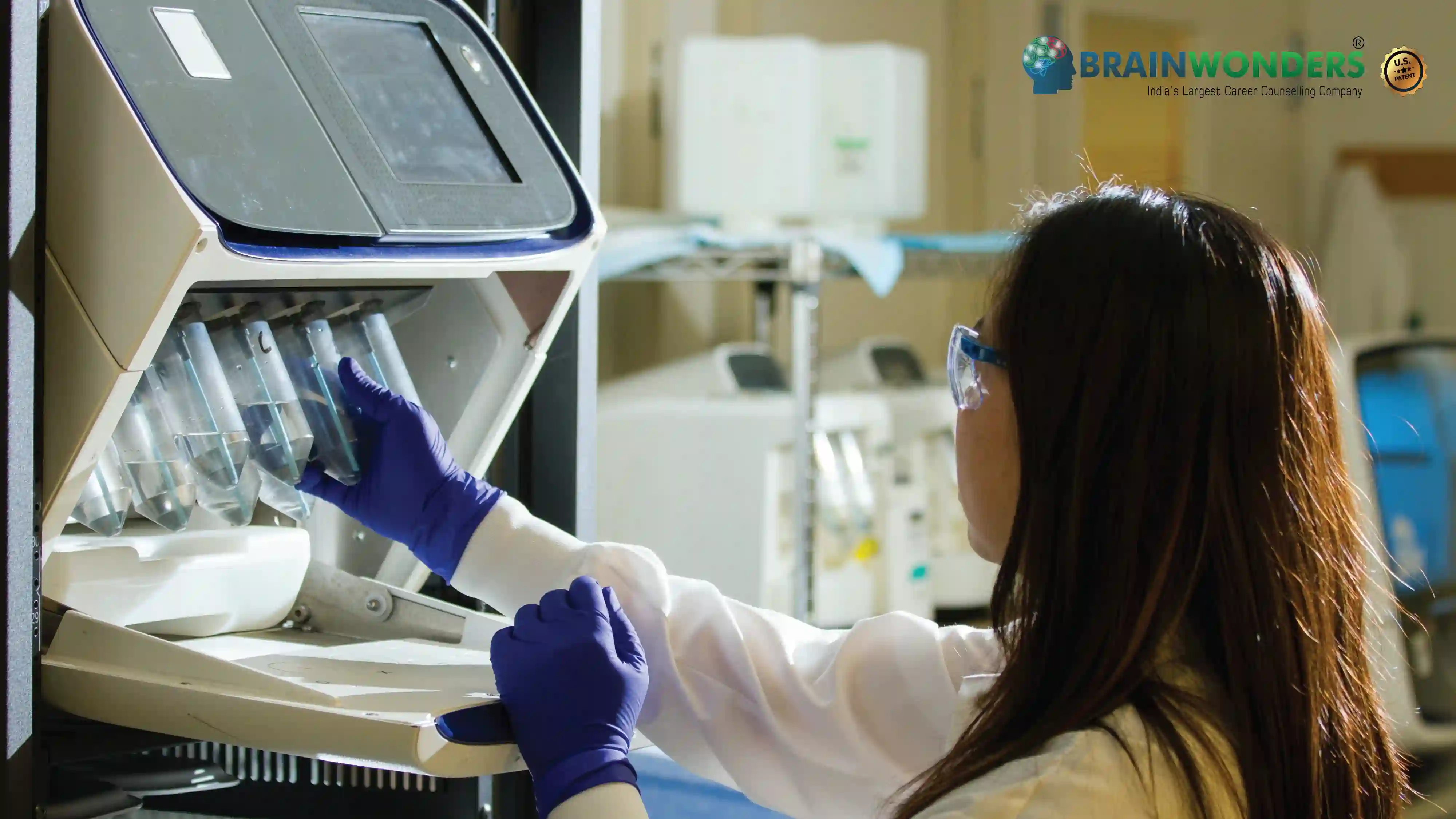How to become a Histotechnologist
Overview, Courses, Exam, Colleges, Pathways, Salary

Overview
Who is Histotechnologist ?
A histotechnologist, also known as a histologic technologist or a tissue technologist, is a medical laboratory worker specialising in analysing tissue samples. They make diagnoses and exclusions based on human, animal, or plant specimens. While both hoist technicians (HT) and histotechnologists (HTL) perform microscopic examinations, HTL is tasked with more complicated duties. The HTL has received significant training in specimen collecting and processing.
This expertise enables the HTL to deal with even the most unusual laboratory circumstances, such as addressing technical or instrument faults, evaluating abnormal test results' underlying health and disease causes, and analysing emerging laboratory procedures and processes. Their job is crucial in detecting, diagnosing, and treating illnesses and conducting research. They sometimes contribute to the resolution of crimes, the development of novel illness treatment methods, and the manufacture of valuable daily items such as plant food.
Typical day at work
What does Histotechnologist do?
- Prepare tissue specimens for teaching students or staff, or for research or diagnostic purposes
- Manage activities of histology laboratory
- To analyze specimens, perform electron microscopy or mass spectrometry
- Perform procedures related with Histochemistry to make specimens for immuno-fluorescence or microscopy
- Manage equipment of laboratory like microscopes, mass spectrometers, micro-tomes, immuno stainers, tissue processors, embedding centers, and water baths
- Freeze tissue specimens
- Mount tissue specimens on glass slides
- Stain specimens of tissue with dyes or other chemicals for visibility of cell details under microscopes
- Examine slides under microscopes to confirm tissue preparation
- Identify tissue structures or cell components for diagnosis, prevention, or treatment of diseases
- Function computerized laboratory equipment to dehydrate, decalcify, or micro-incinerate tissue samples
- For microscopic examination, cut sections of body tissues using micro-tomes
- Embed tissue specimens into paraffin wax blocks or infiltrate tissue specimens with wax
- Prepare precise documentation on the basis of established policies, procedures and regulations
- Fix, dehydrate, and infiltrate with wax tissue specimens to be preserved for study
- Prepare media, chemicals, reagents and solutions
- Manage inventory of supplies, material, and equipment
- Maintain and clean equipment and instruments as per established procedures and manufacturer’s instructions.
Abilities and Aptitude needed
What are the skills, abilities & aptitude needed to become Histotechnologist?
- Histotechnologists must be familiar with the operation and setup of sophisticated laboratory apparatus. In addition, they should have high regard for accuracy and be at ease working with technology that needs constant monitoring.
- They are investigative, detail-oriented, intelligent, reflective, and curious persons. They are interested, critical thinkers who are meticulous, scientific, rational, analytic, and logical in their approach. They are problem solvers who are capable of taking on responsibilities. They are precise, dependable, and perform well under time limitations. They communicate well with other team members, both in writing and verbally.
- They must adhere to precise instructions to complete the tests or processes successfully. They must have vital manual agility and the ability to work intimately, safely, and successfully with needles, chemicals, and other laboratory tools. Finally, they must operate swiftly and precisely under duress to produce outcomes while the patient is undergoing surgery.
- They need physical stamina because they may be on their feet for extended periods while collecting samples and may sometimes be required to lift or turn impaired individuals to collect samples for testing.
- Additionally, they must adhere to all conventional laboratory safety regulations and quality control requirements and know and adhere to all legal and health care processes.
Pathways
How to become an Histotechnologist?
Entrance Exam
Entrance Exam for Histotechnologist ?
Courses
Which course I can pursue?
Best Colleges
Which are the best colleges to attend to become an Histotechnologist?
Industries
Which Industries are open for Histotechnologist?
internship
Are there internships available for Histotechnologist?
Career outlook
What does the future look like for Histotechnologist?
Typically, histotechnologists operate in clean, well-organised labs. They work as part of a laboratory team and are supervised by a pathologist. They may work in hospitals, physician offices, clinical pathology laboratories, veterinary services, private research laboratories, pharmaceutical businesses, government agencies, private medical laboratories, public health facilities, educational institutions, or forensic pathology.
Those who work in laboratories that are open 24 hours a day may be required to perform night shifts. They often work eight-hour shifts, although their schedules may be flexible. At times, technologists may be required to work overtime. They are often sitting and examining objects via microscopes.



.webp)


